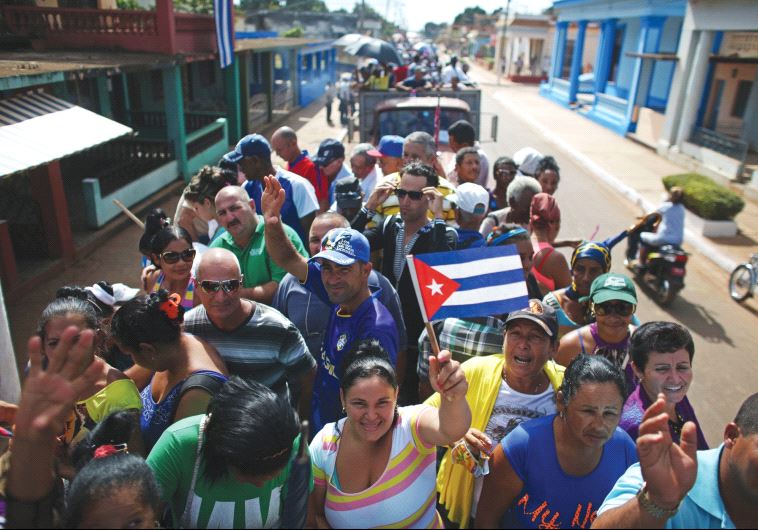Trump to clamp down on Cuba travel, trade, curbing Obama's detente
The changes – though far-reaching – appear to be less sweeping than many US pro-engagement advocates had feared.
 PEOPLE ARE transported to greet the caravan carrying the ashes of Fidel Castro in Colon, Cuba, on Wednesday.
PEOPLE ARE transported to greet the caravan carrying the ashes of Fidel Castro in Colon, Cuba, on Wednesday.